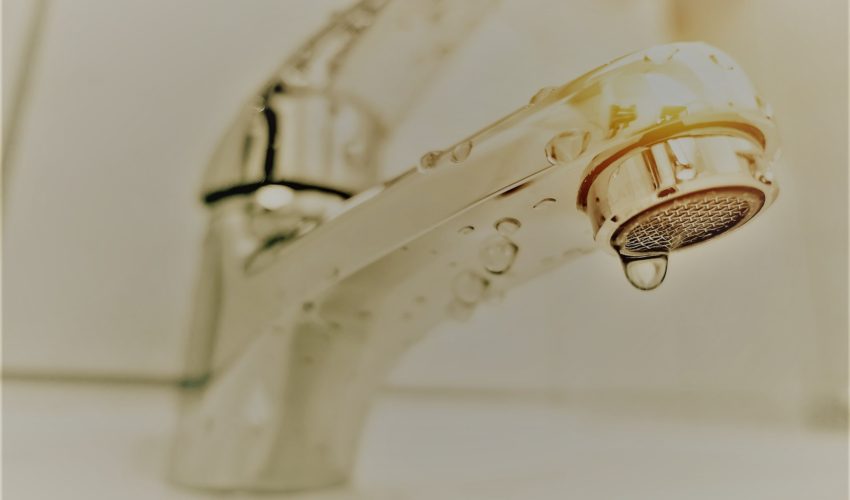Leading Approaches for Fixing Low Water Pressure in Your Home
Leading Approaches for Fixing Low Water Pressure in Your Home
Blog Article
What are your thoughts about 10 Reasons for Low Water Pressure in Your House?

Low water stress in your home can be a frustrating issue, affecting everything from showering to cleaning meals. If you're experiencing weak water circulation, there are several feasible reasons and solutions to explore. In this overview, we'll discuss usual reasons for low water stress and useful steps to attend to the problem successfully.
Introduction to Low Water Stress
Low water stress takes place when the flow of water from your faucets, showers, and other fixtures is weak than usual. This can make day-to-day tasks a lot more difficult and less reliable. Comprehending the reasons for low water pressure is critical to locating the right remedy.
Typical Root Causes Of Low Water Stress
Faulty Pressure Regulators
Stress regulatory authorities are in charge of maintaining regular water pressure in your home. If they malfunction, it can lead to low tide stress or uneven circulation throughout your home.
Metropolitan Supply Of Water Issues
In some cases, the trouble exists outside your home. Municipal water system issues, such as main line leaks or upkeep work, can temporarily reduce water stress in your area.
Pipe Obstructions
With time, pipelines can come to be blocked with mineral deposits, sediment, or debris, restricting the circulation of water. This is a common concern in older homes with galvanized steel pipes.
Deterioration
Rust within pipes can cause leaks and decreased water stress. Rust build-up can restrict water circulation, specifically in maturing plumbing systems.
How to Diagnose Low Water Pressure
Examining Pipelines
Examine visible pipes for signs of leakages, corrosion, or blockages. Focus on any kind of unusual sounds, such as knocking or rattling pipelines, which can suggest concerns within the plumbing system.
Consulting with a Plumber
If you're incapable to identify the source of low tide stress, think about hiring an expert plumber to conduct a thorough evaluation. They can recognize underlying concerns and suggest ideal solutions.
Inspecting Faucets and Fixtures
Start by evaluating the water stress at various faucets and components throughout your home. If the issue is isolated to particular locations, it might suggest localized problems.
DIY Solutions to Repair Low Tide Pressure
Flushing Hot Water Heater
Sediment build-up in the water heater can limit flow and lower efficiency. Purging the container regularly assists remove sediment and keep optimum efficiency.
Checking Pressure Regulator
Make certain that the pressure regulatory authority is working properly. Readjusting or changing the regulatory authority can help restore appropriate water stress throughout your home.
Cleaning Up Aerators and Showerheads
Mineral deposits can build up in aerators and showerheads, reducing water circulation. Eliminate and clean these elements frequently to boost water stress.
Clearing Up Clogs in Pipes
For minor obstructions, try making use of a plumbing serpent or chemical drainpipe cleaner to clear obstructions in pipelines. Be cautious when making use of chemicals and follow safety guidelines.
When to Call an Expert Plumber
If DIY initiatives fail to settle the issue or if you think significant plumbing issues, it's best to seek aid from a qualified plumber. They have the know-how and devices to resolve complex concerns securely and efficiently.
Preventive Measures to Preserve Water Pressure
Mounting a Pressure Booster
Think about mounting a pressure booster pump to enhance water pressure in locations with continually low circulation. This can be especially helpful for multi-story homes or buildings with high-demand fixtures.
Tracking Water Use
Be mindful of water usage routines and prevent ill-using the plumbing system. Easy modifications, such as shocking showers and washing loads, can assist maintain appropriate water pressure.
Routine Maintenance
Arrange routine upkeep for your plumbing system to stop issues such as deterioration, leakages, and clogs. Addressing minor troubles early can assist prevent even more significant repair work later.
Conclusion
Dealing with low water pressure can be frustrating, yet identifying the underlying reasons and implementing proper services can recover optimum circulation throughout your home. Whether it's cleansing aerators, checking pipes, or seeking advice from a plumber, taking proactive actions can make sure a constant supply of water for your daily demands.
How to Fix Low Water Pressure In Your Home
Municipal Water Supply Issues
Scheduled maintenance, high demand, and water main breaks are all potential causes for low water pressure within a city or county’s water lines. While there’s not much you can do to personally fix a problem with your city or county’s water supply system, you can play a big role in documenting the issue and alerting those who can.
How to fix it:
Ask your neighbors if they are experiencing any issues with low water pressure. If multiple homes are affected, it’s likely related to the city’s water line. Contact the local Water Authority to see if there is any maintenance taking place that might be affecting your supply. Also let them know of your specific issues. If other homeowners report the same issues, they’ll know that there could be a larger issue to look into. Faulty Fixtures
A damaged or clogged shower head, faucet or appliance is the first thing we’d suggest checking, especially if low water pressure appears to be isolated to a specific area of your home.
How to fix it:
First, turn off the main water supply to your home. Check the affected appliances for build-up or debris. In the case of a faucet, you can simply unscrew the aerator at the tip of the faucet. Showerheads should be fully detached from the water pipe. While the appliances are detached, you may want to check the water supply to determine if the fixtures were in fact the issue. To clean, soak the showerhead or aerator in vinegar and brush off any visible debris. Reattach the fixtures and check the water pressure again. If it is still low, there is likely a deeper issue at hand, which can be determined by a professional plumber. Pipe Obstructions
Mineral deposits, rust or other debris within water pipes can lead to blockages or corrosion over time.
How to fix it:
When you think of a clog, you probably think of a drain clog. While there are many DIY solutions to clearing a drain, clogs in a water pipe will almost always require the help of a professional plumber. A plumber will be able to locate the affected pipe and clean out any debris or mineral deposit buildup. In severe cases, the pipe may need to be replaced. Your plumber might also recommend a water softening system to remove the minerals from your home’s water supply that can contribute to pipe blockages over time.
Plumbing Leak
Undetected water line leaks can divert water away from your residential pipes, reducing the water pressure in your fixtures.
How to fix it:
Check your water meter by turning off all water sources and monitoring the meter for any movement, which could be a clear indicator of a potential leak. Check all visible pipes for signs of leaking, including water stains, active dripping or damp spots around the pipe. Inspect fixtures, including faucets and showerheads, for any drips. Test the pressure but recording the pressure with the main water valve shut off. Leave off for a few hours and test again. A significant drop in pressure is a clear sign of a leak. https://kiddcoplumbing.com/plumbing-blog/how-to-fix-low-water-pressure/

As a passionate reader about 10 Reasons for Low Water Pressure in Your House, I was thinking sharing that excerpt was beneficial. Loved our posting? Please share it. Help other people find it. Many thanks for going through it.
Call Today Report this page